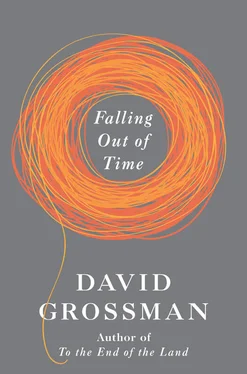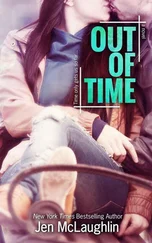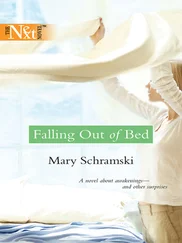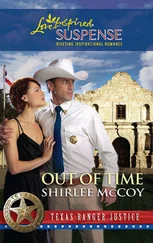facts comma what
else is there to say
question mark write them
down and shut up
forever colon at
such and such time comma in
this and that place comma my son
comma my only child comma aged
eleven and a half
period the boy
is gone
period
TOWN CHRONICLER: And with these last words, using both hands and terrible force, he pounded the table, and his face contorted so painfully that for a moment I thought, Your Highness, that he had struck his own body.
MIDWIFE:
Dear God, such pain
cuts suddenly deep down
in my stomach, my girl—
if only I knew that th-th-there , too,
when you arrived,
when you finished
dying,
you were welcomed with loving arms
and a warm, fragrant t-t-towel,
and someone,
or something, in whose bosom
you found peace
in those first moments.
TOWN CHRONICLER: Next to the train station, in the dark, by a lopsided house, stands the elderly teacher. His silver head leans in against the wall of the house to whisper a secret. With a commanding gesture, as though once again having been waiting for me, he invites me to sit on the sidewalk by his feet. Two plus two equals four, I murmur after him, and instantly feel relief. Three plus three is six. Four plus four — eight. My presence seems to fill him with life: he scribbles exercises on the wall, his eyes aglimmer. Five plus five is ten, I sing along joyfully, craning my neck back to see him standing over me. His coattails fly as he leaps from one exercise to the next. My voice grows soft and thin. I imagine that my feet do not reach the road and I can swing them. Ten plus ten twenty, I cheer, and from the second-story window someone empties a chamber pot of wastewater on us and yells: People are trying to sleep!
I get up and stand next to the teacher. We are both wet and shamefaced, as though caught in a foolish prison escape. The teacher looks suddenly small and shriveled like a baby. If only I could touch, I would take him in my arms and rock him and hum until he fell asleep. Instead I open my notebook, and in the most official voice I can muster, I ask him for details.
ELDERLY MATH TEACHER:
The questioners persist:
And has it no fissures?
No cracks
or crevices?
No.
And can you
touch it?
It has no touch.
But tell us: Is it full or
hollow, this great fact
of your life? Is it slack
or taut?
No, no,
I respond awkwardly, it’s
here, it’s
here!
But you’ve already said that!
Yes, it’s odd how little
I have to say
on the matter. Surprising
and disappointing, I know,
but it, namely that ,
meaning the death
of my son, of Michael,
twenty-six years ago
in a foolish accident
(a prank gone awry,
a bathtub, a razor,
veins slashed
in the course of a game),
it seemingly swallows up
the words and the wisdom,
all the keys.
Only one thing remains
steadfast:
it is here.
Whether I come or go,
whether rise or lie—
it is here.
When I am alone
or sitting in the square,
or teaching a class—
it is here,
filling me up entirely
until nothing is left and
there is no room,
sometimes, for myself.
Yes, that is certainly something I wanted
to say (and perhaps it should be noted):
that I have no room
for myself. Or just
for a breath. Yes,
that’s the thing:
one
good
breath,
a deep
breath,
whole
and pure,
without the convulsion
of horror
in its depths—
But of the thing itself
(as I have said)—
nothing,
not one word.
WALKING MAN:
When I have a flash of memory—
you sitting over your homework in the kitchen,
or smiling on the beach, in an old photograph,
or just asleep in bed—
I instantly awaken
what came the moment before.
Or what will come the moment after.
Before my memory caught you;
after the photographer froze you.
Then I knead you:
so your features broaden
into a smile,
then slowly focus
in contemplation.
So your eyes light up suddenly,
change colors
in the light,
brim with fury
or amazement
or intrigue.
Thus you shall walk in your room,
this way and that, in the cool of the day,
small waves
of grace,
naïveté and youth
move beneath your skin,
your fair hair skips
on your forehead.
And now you will turn to me and say:
But, Dad, you don’t understand—
Or in your sleep, beneath a sheet,
your chest will rise and fall,
rise,
and fall,
and rise again.
(Ah,
I have asked too much.
I will be punished.)
And yet,
my son,
you do move,
you do move
in me.
CENTAUR:
Sometimes I play games
on it, the goddamn it ,
activities: “Death is
deathful.” I wink at it,
like it’s a little game
we play: “Death will deathify,
or is it deathened? Deatherized?
Deathered?” I patiently recite,
Over and over, rephrasing, finessing:
“We were deathened, you will be
deatherized, they will be
deathed.”
What else can I do—
neither write
nor live. At least
language
remains, at least
it is still
somewhat free,
unraveled.
TOWN CHRONICLER: Tell me about the cradle.
CENTAUR: What’s that? What did you say ?
TOWN CHRONICLER: The cradle. In the big pile, behind you.
CENTAUR: I hope with all my heart, you miserable clerk, that my ears deceive me.
TOWN CHRONICLER: It has two ducks painted on the side.
CENTAUR: It’s a real shame, clerk. You’ve ruined the moment.
TOWN CHRONICLER: His shoulders start to swell. His cheeks, too. My gamble has failed. He struggles to move himself away from the desk and stand up. I have to get out of here, quickly. I’ve never seen him not behind his desk. In fact, until this moment I have not seen him stand. I remember what I read about him in the town archives. This is the time to flee, but my legs disobey me. He grows larger and larger in front of me. He will get up, that is clear, get up and uproot the house with him and split the roof. The toys and the clothes and the other remnants of childhood will crumble to dust and scatter every which way. It’s a shame. Such a shame. I was almost beginning to like him. He groans; his face trembles. I hear, from there inside with him, in the room, loud taps and a strange creak, like a large, sharp fingernail scratching a tile. I close my eyes and tell myself it’s only the desk; it’s just the desk making that sound. A thought flies through my mind: He will get up from his chair and pluck me into his room and devour me. And another thought: That desk has hooves.
CENTAUR: Damn, damn! Not even stand up? Shit. Shit!
TOWN CHRONICLER: His head plunges onto his chest and he weeps. I swear, he weeps. I’d best be gone. Otherwise I will embarrass him. I will wait one more moment and then leave. His shoulders heave. Quick, truncated shudders. He covers his face with his hands. I count the cracks and grooves in the sidewalk. Correct a few mistakes in the notebook. Then, having no choice, I begin to listen to the different layers of his sobbing until I hear one I know well. If I were to cry, this is likely how I would cry. I listen. From the minute the thing happened to my daughter, I forbade myself any self-pity whatsoever. This requires, of course, a certain degree of self-control and constant guardedness. At night, too. I cannot forbid the centaur to cry, however. That is his private affair, even if for some reason he insists on weeping in my voice. I try to guess what my wife would do in this situation. I rise up on my tiptoes. My hand hovers over his head. This is a hand that has no right to touch a person. Pathetic, impure, the hand of a coward. I take a deep breath and shut my eyes and caress his curls. “There, there,” I say.
Читать дальше











